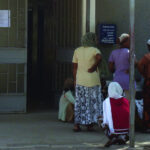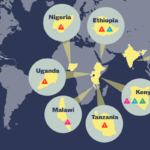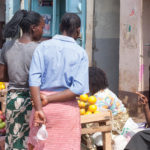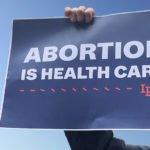
Ethiopia’s health system is in crisis, but health workers keep going. With support from Ipas, providers continue delivering essential abortion and contraceptive care—even as aid cuts, conflict, and climate crisis impacts threaten reproductive health services.


“The current election in the U.S. is one of the most critical elections for the future of women’s rights, sexual and reproductive rights, and the right to safe and legal abortion,” says Dr. Jean-Claude Mulunda, Director of Ipas Democratic Republic of Congo. “The toughening of laws that began with the Dobbs decision set a detrimental direction; and this election will decide the fate of women in the U.S. and worldwide.”

The U.S. Supreme Court overturned Roe v. Wade one year ago. Since then, millions of Americans have lost access to abortion. Ipas’s global network has also seen a ripple effect around the world, with impacts in many of the countries where we work.

The global ripple effect of the U.S. Supreme Court’s decision striking down the constitutional right to abortion in the United States is being felt in Kenya.

Around the world, countries are expanding abortion rights and access. Since 2000, 37 countries have liberalized abortion laws. Sadly, the United States is poised to go backward.

Kizza Blair is a fourth-year medical student in Uganda and a member of Medical Students for Choice. In this Q&A, we ask him about the value of safe abortion care and the impact of the Helms Amendment, a U.S. law that restricts U.S. foreign assistance funding for abortion services and disproportionately affects Black and brown women in low- and middle-income countries.


